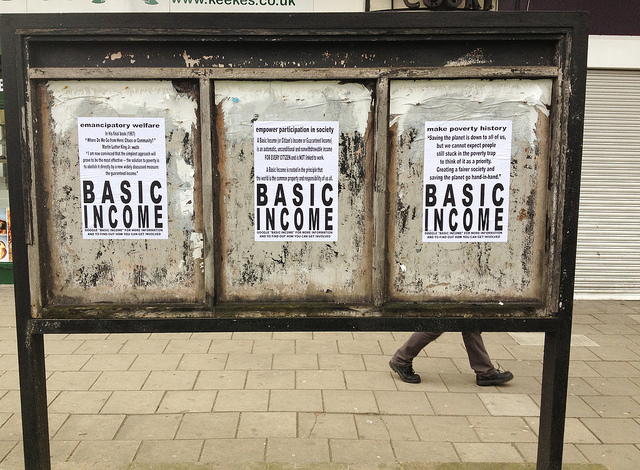Basic Income debate to spread over French Presidential Race

Benoit Hamon secured the French Socialist Party's presidential nomination on Sunday, beating rival Manuel Valls. Initial results gave Hamon 58 percent of the vote and Valls only 42.
Hamon was the more left-wing choice of the two politicians. He supports a universal basic income and wants to reduce the traditional work week to 35 hours. He has also spoken in support of legalizing cannabis and increased investment in renewable energy. Valls, on the other hand, has called himself a more "Clintonite" leftist with a strong belief in pragmatism and individual responsibility.
French presidential hopeful Benoit Hamon hopes to unleash on a national scale with his radical proposal that all French adults — rich and poor, working or unemployed — be paid a modest but regular monthly no-strings-attached salary to give them the freedom to try new things without the fear of unpaid bills.
He has said he would begin in 2018 by giving 18-to-25-year-olds and the jobless poor €600 a month, increasing it over time to €750 and to all the French.
The cost, says the 49-year-old, will be around €350 billion ($374.82 billion), roughly equivalent to the annual budget of Europe's second-biggest economy. An ambitious overhaul of taxes will be pursued to fund it, he says.
"Look at Germany, model country with full employment, where the jobless rate is five or six percent. Nobody sees the poverty rate is 17 percent. In reality, it's a tradeoff: jobs at the price of poverty," Hamon said at a meeting in Marseille few days ago.
A study by OFCE, an economics research unit linked to Sciences Po, said the measure would cost a net €480 billion a year, after accounting for various existing welfare payments it would replace. That’s equal to 22% of gross domestic product, in a country where taxes already account for 45% of economic output. Among 35 rich countries tracked by the OECD, only Denmark has a higher tax take.
That opponents of his signature proposal are so vocal and easy to find even in Hamon's district, where he vacuumed up 55% of votes in the primary first round last Sunday and where people warmly describe him as a salt-of-the-earth type who is generous with his time, gives a foretaste of the steep uphill battle the expected Socialist Party candidate will face in France's presidential election in April and May.
Finland this month, the first country in Europe, began a two-year experiment paying 2,000 unemployed workers a basic income. Under the two-year, nationwide pilot scheme, 2,000 unemployed Finns aged 25 to 58 will receive a guaranteed sum of €560. The income will replace their existing social benefits and will be paid even if they find work.
A similar measure was also put to Swiss voters last year in a referendum. The vast majority of Swiss voters rejected the proposal that would have provided every citizen a guaranteed income of $2,500 Swiss francs ($2,520) after tax, regardless of their employment status or wealth.
In that occasion the Swiss government opposed the initiative, saying it would have needed to find 25 billion Swiss francs a year to pay for it. The resulting new taxes, or spending cuts, would have damaged the economy, it argued.
The French presidential election takes place in two rounds of voting, with the first held on April 23. If no candidate wins a majority, which is likely, a runoff between the two candidates with the most votes will be held on May 7.

